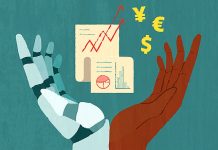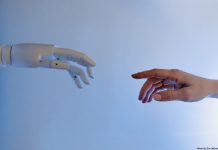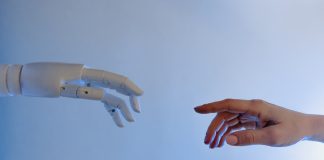The Big Data Revolution (with the help of Machine Learning , Deep Learning and Artificial Intelligence) can transform our world in a “Big Brother Nightmare”… It could be… but, The Big Data can at the opposite improve our lives for a better tomorrow. Choosing the humanist way will be only a human choice…

So, let’s check these 5 actual cases where the Big Data ecosystem improve humanity lives for real.
#1 -Anticipating Meteorological Crises
By combining marine observation sensors, ocean’s waves & currents + other data with analytical tools running with Machine Learning, researchers can develop predictions of tsunamis and other natural disasters, and so saving the lives of thousands of people living in coastal areas.
#2 – More Saved Premature Babies
By being able to monitor over 1,000 data points per second, researchers have made a surprising discovery: prematurely born children with unusually stable vital signs have high fevers the next day. Thus informed, doctors can now take preventive measures and save more premature babies lives.

#3 – Improving Aviation Safety

Data analysis is used to improve flight performance and aviation safety, reduce turbulence and identify engine failures 2,000 times faster than ever before. Aeronautical data also helps to refine flight plans and inform staff that a part must be replaced a long time before it is found to be defective.
#4 – For A Better Medical Follow-up
Data analysis, Deep Learning and robotics improve patient follow-up, long-term care and help prevent relapses. Big Data is used to predict which patients are likely to follow their doctor’s advice, and who may not.
Mobile applications are developed to check whether a patient is taking medication, such as an inhaler with a GPS chip for asthmatics. Others record information about calls, SMS, geographic location, movement and sleep cycles. So, Doctors and family members can then be alerted if a patient presents alarming signs.
Due to the increase in the quantity and quality of the data collected, but also the ability to analyze and understand them, it will soon be possible to improve patient treatment, understanding diseases and even fighting cancers wth a best efficacity. Thanks to Big Data, healthcare is in full swing.
#5 – Predicting Diseases and Epidemics
With Big Data technologies that can handle huge amounts of data, doctors are better equipped to diagnose diseases and contain epidemics.
The heroes of 2014 are, according to the magazine “Time”, doctors, nurses and volunteers who fought the Ebola virus in Africa. Thousands of kilometers away, an innovative startup has also helped to save lives. Nine days before the official WHO alert, the Boston-based HealthMap company was already observing the spread of the virus in Guinea through massive analysis of various information from airlines, websites like Twitter and public health bulletins. The American startup has specialized in the use of “Big Data” * to detect the appearance of epidemics and to follow their spread in real time: Ebola but also malaria, H1N1 flu, etc. This is a particularly valuable tool for health authorities in emergencies.
300,000 tweets and 250 GB to spot outbreaks of infection
Every minute, the world generates about 300,000 tweets and 250 gigabytes of information on Facebook: a veritable mine of information to spot outbreaks of infection … if you have the right processing capabilities. Big Data technologies are deconstructing large amounts of data in real time. According to the Nigerian Minister of Technology, analysis of social media would have reduced the time taken to intervene when a person contracted Ebola by 75%. Thousands of lives have been saved.
 Thinkstock
Thinkstock
For hospitals and research centers, Big Data are also essential. The Pediatric Hospital in Toronto, Canada, for example, has developed a computer platform that monitors the medical parameters of premature infants in real time. “Sensors placed on babies recover vital data (heartbeat, respiratory rate …) which the system analyzes continuously and compares to past diagnoses. This makes it possible to gain up to 24 hours in the detection of problems” explains Patrice Poiraud , Engineer at IBM. The stakes are high: according to the University of Ontario, a quarter of premature babies develop infections, of which 10% are fatal. The platform developed in Toronto is intended to be extended to other hospitals in the years to come. Something to reassure future mothers.
____________________________________________________________________

 Thinkstock
Thinkstock






![The Incredible Growth of Fintech [Infographic]](http://ipfconline.fr/blog/wp-content/uploads/2018/02/31-01-2018-growth-of-fintech-1-218x150.jpg)
![FINE LIST OF 50 TOP WORLD BIG DATA EXPERTS TO FOLLOW IN 2017 [WITH MOZ SOCIAL SCORE]](http://ipfconline.fr/blog/wp-content/uploads/2017/05/Capture0000001ALTERN-218x150.jpg)

![FINE LIST OF 30 TOP WORLD INSURTECH EXPERTS TO FOLLOW IN 2017 [WITH MOZ SOCIAL SCORE]](http://ipfconline.fr/blog/wp-content/uploads/2017/05/hgfhfh1-218x150.jpg)















